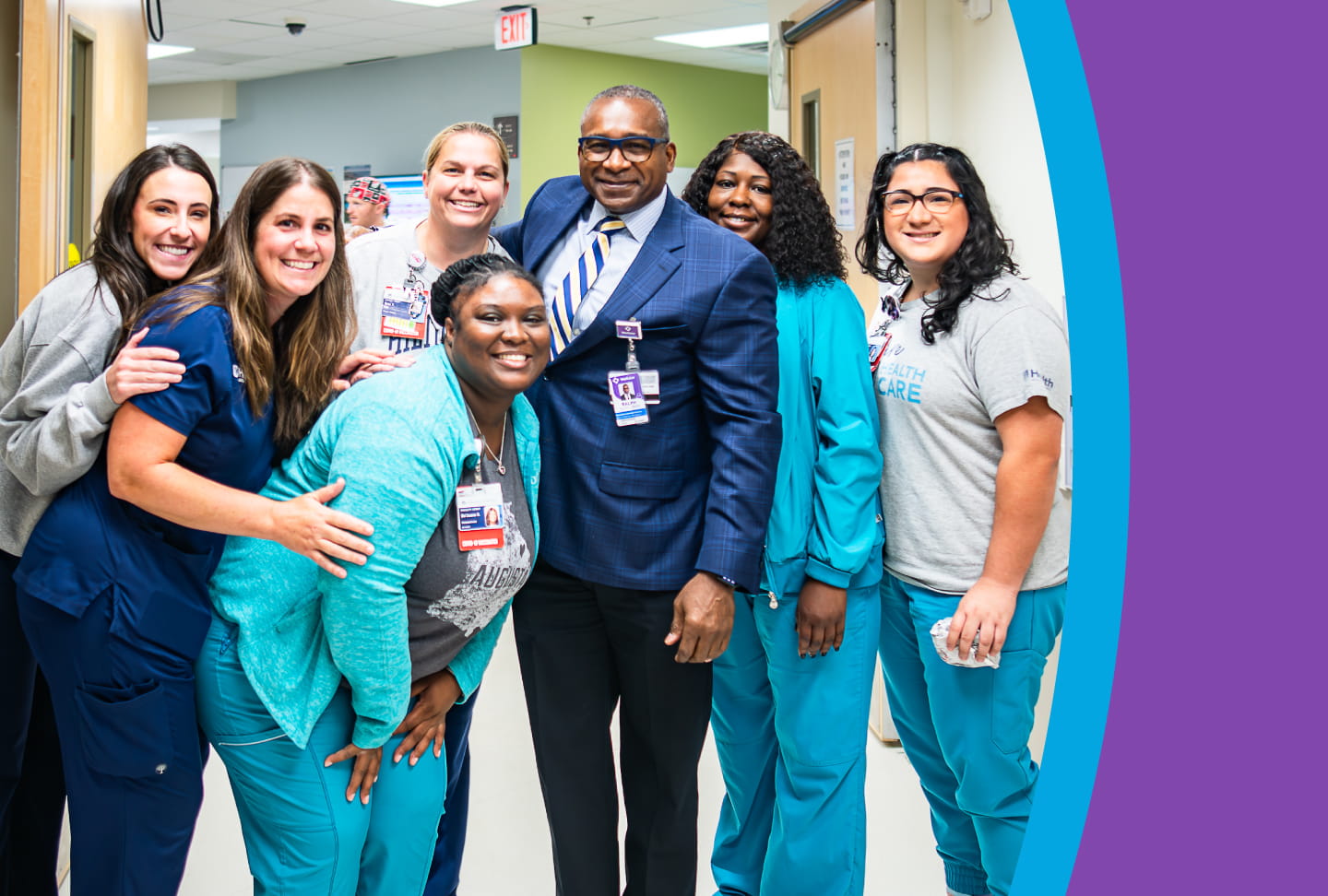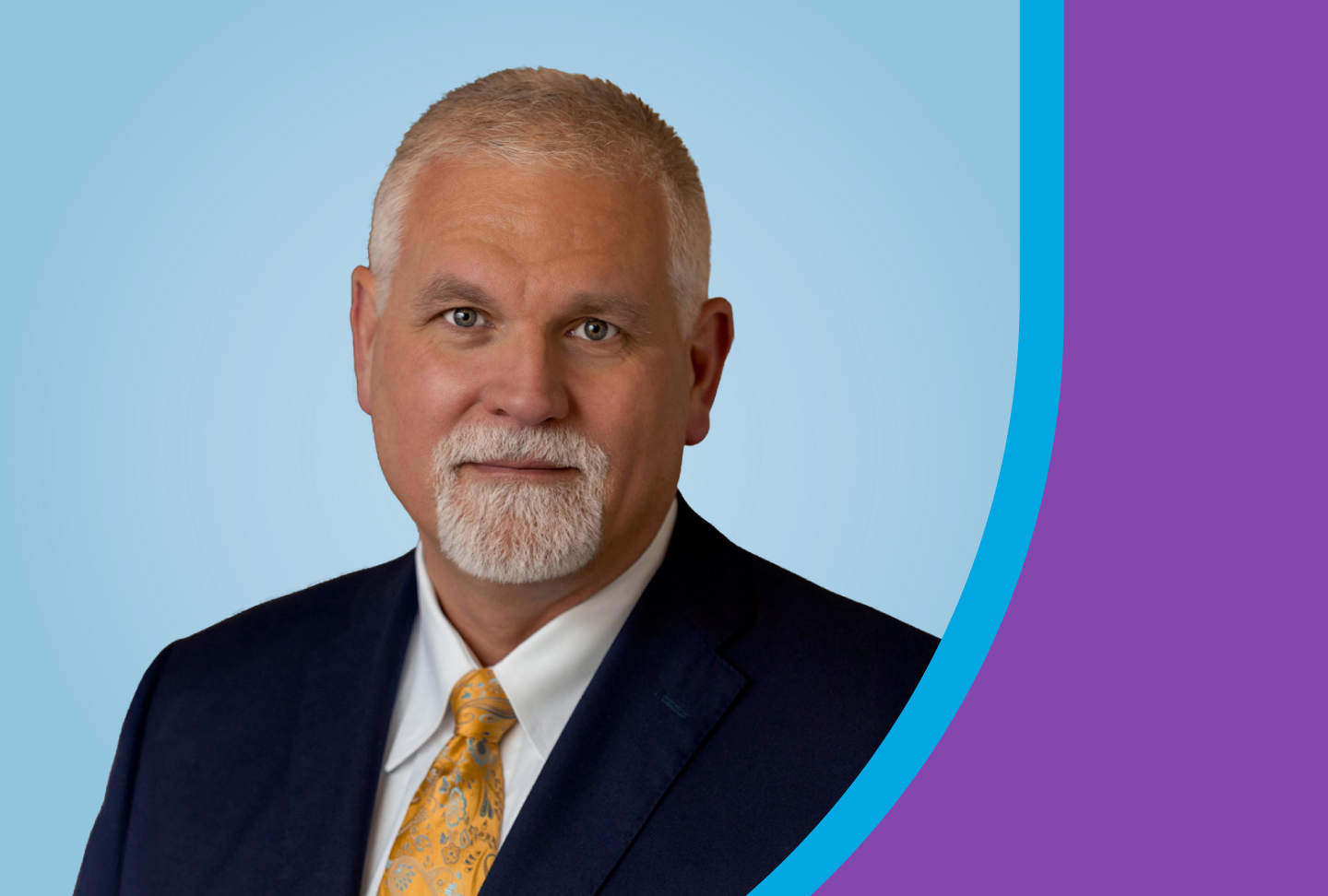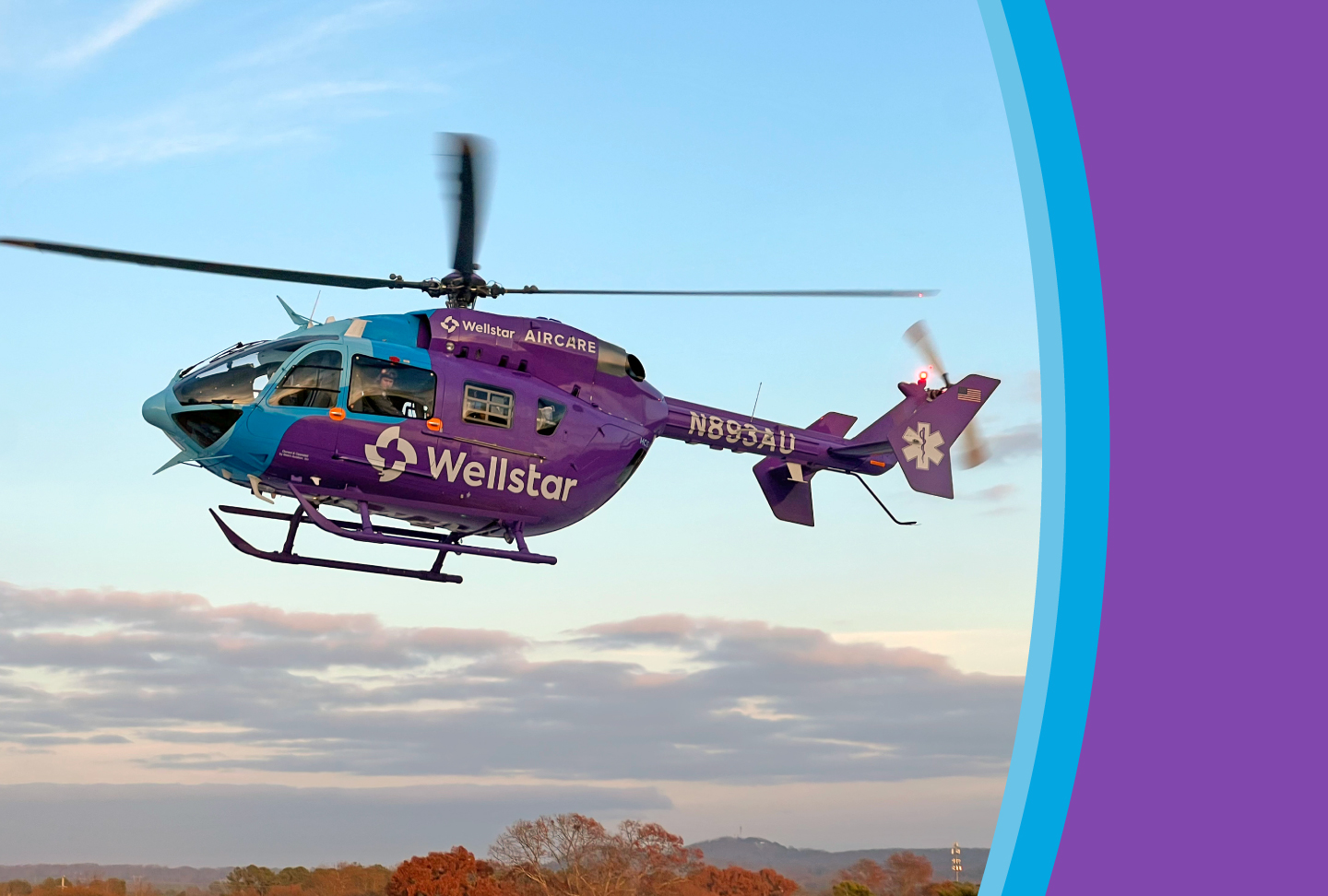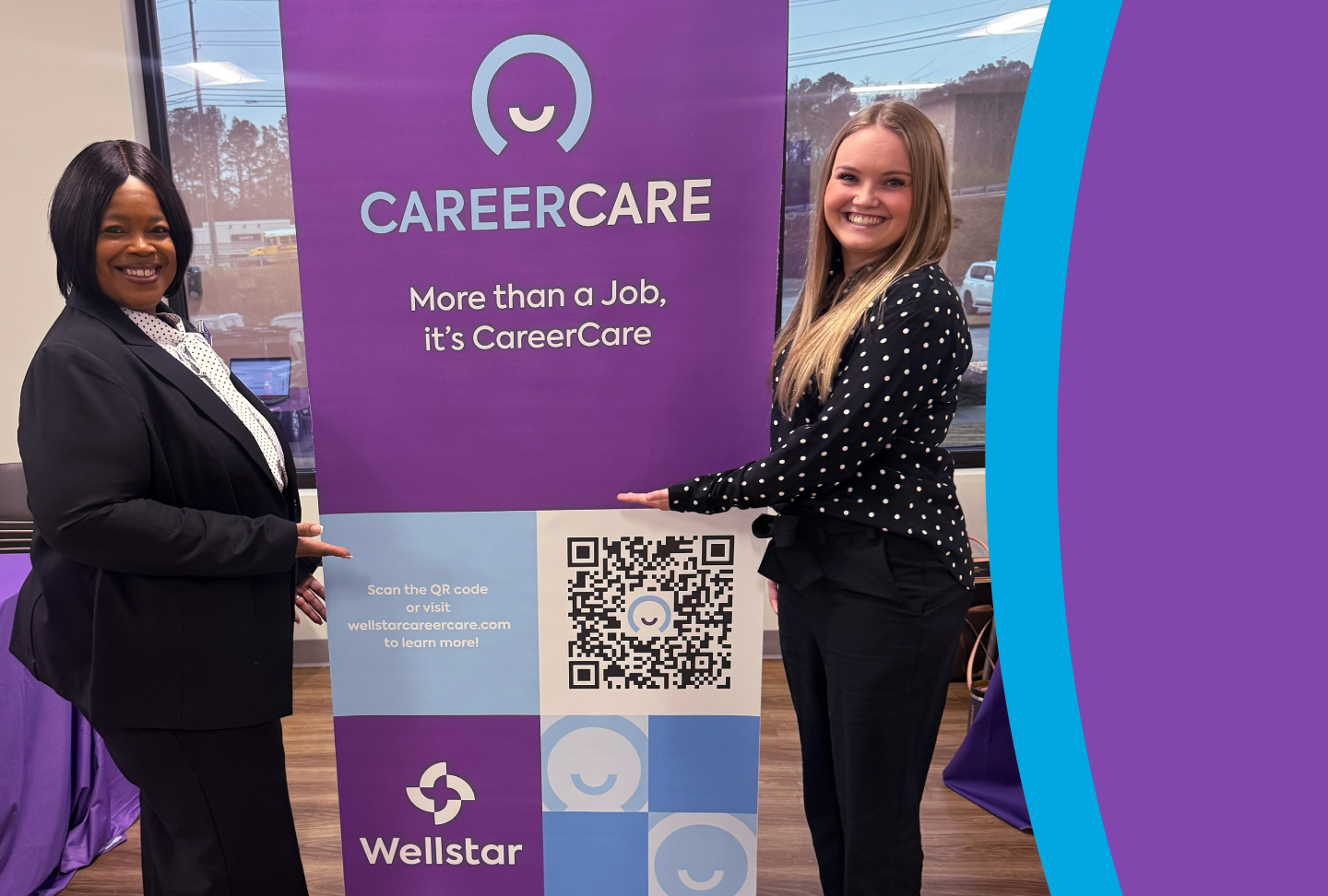Ralph Turner stepped out the front door of his new apartment in North Augusta and ran into his neighbor, who had a Wellstar MCG Health Medical Center badge.
“I work there too,” he said. “Oh, what do you do there?” she asked.
He held out his badge that read “president,” and she looked up in shock.
“There are so many medical students and Wellstar employees in my complex,” he said. “The hospital is such a large part of the community.”
Turner, who has lived out of a hotel in Augusta until last week, still considers Powder Springs his permanent base. He drives to Augusta on Sunday afternoon and back to Atlanta on Thursday night to spend Friday at Wellstar Paulding Medical Center. Saturday is his rest day to enjoy with his wife of 31 years, Ann.
The new leader started his career in 1986 with the U.S. Army, giving him the chance to live around the world—Fort Bliss, Texas; Fort Cavazos, Texas (formerly Fort Hood); Fort Belvoir, Va.; Fort Johnson, La. (formerly Fort Polk); Fitzsimons Army Medical Center in Aurora, Co.; Germany; Alaska; Washington, D.C.; and Seoul, South Korea.
From the start, he knew he wanted to work in healthcare.
“It’s rewarding to help people when they are at their most vulnerable state,” he said. “To me, there is honor in that.”
After graduating from high school in Valdosta, Ga., he joined the Army and took a job repairing hospital equipment. After eight years, he became a warrant officer—a highly respected position for subject matter experts who make up less than 3% of the Army—and began managing clinical engineering departments in hospitals.
At the same time, Turner was taking classes. He earned his bachelor’s degree in 1995, going on to earn a master’s in public administration and then a master’s in healthcare administration.
“My mindset is be all you can be,” he said.
The more senior he became, the more departments he managed. His last assignment for the Army was at the Walter Reed Army Medical Center in Washington, D.C., where he ran support services departments such as property management, environmental services and clinical engineering for facilities. After more than two decades in the Army, he retired in 2008 as a Chief Warrant Officer Four (CW4) and earned an executive position with MedStar Washington Hospital Center as an assistant vice president of facilities and support services.
Turner departed Washington, D.C., for Wisconsin to work at the University of Wisconsin Hospitals and Clinics and thought he was finished with school after three degrees. But when his oldest son began to talk about going to medical school, his competitive side came out. He returned to school at the University of Wisconsin and earned his doctorate in business administration.
“I thought, ‘He’s not going to be the first one in the family to be called a doctor,'” he said in good humor.
From there, he moved his family to Cleveland, where he joined the Cleveland Clinic for two years. He then transferred to Florida for three years for his role as chief operating officer, overseeing a merger between the Cleveland Clinic and Indian River Medical Center in Vero Beach.
Turner’s journey with Wellstar began in May 2022 when he became president of Wellstar Paulding Medical Center in Hiram, Ga. He is now the first president of Wellstar MCG Health in Augusta.
We sat down with Turner last week, and he answered some questions to help the staff and community get to know him and his vision for the future of Wellstar MCG Health.
What’s your day-to-day like right now at Wellstar MCG Health?
Right now, I’m usually at the gym between 5 and 5:30 AM, and then in the office between 7 and 7:30 AM. My day usually ends between 7 and 7:30 PM. If I am not in a meeting, my door is always open. I have an open-door policy. I usually have anywhere from 80 to 100 emails at the end of the day, and I make sure to go through all of them before I leave at night.
What made you want to go into hospital management?
I have always liked helping people, and I knew going into healthcare, you’re doing just that. In high school in Valdosta, we had the South Georgia Medical Center and my plan was to end up there. My father passed when I was 4 so my mother, my grandmother and my godmother raised me. Those three women always told me to treat people the way that I wanted to be treated, and if I got caught not doing that, they always reminded me with a stick, broom or whatever they got their hands on. Needless to say, I quickly learned the Golden Rule and apply that to every area of my life—professional and personal.
What’s the biggest area of improvement you’re working on here?
First, ensuring people are paid fairly. Our Human Resources at the main campus is focused on putting together a comprehensive plan that will start to bring our caregivers to a market-compatible salary. You must make sure you do the right thing for your staff, because that’s the most important resource you have. Second, ensuring that our facility looks like it’s a place of healing. Third, ensuring physicians are supported and strengthening our medical services lines in the market. Smart and efficient growth of our physician staff and service lines lead to market domination, which leads to a stronger training center at our medical school. Fourth, community initiatives—getting out into the community and meeting community leaders to let them know we are here to support them. Fifth, ensuring a good relationship with leadership at Augusta University. And, lastly, protecting our assets. When I say our assets, this includes students in their didactic phase of learning and students in their residency or fellowship. We want to be our students’ first choice when it comes to choosing an employer. We want them to stay with Wellstar, be it here in Augusta or in the Atlanta area. We have a lot of students who come from other universities in and out of the state. My thought is, let’s feed ourselves first and go to outside resources for talent second.
Can you talk more about what improvements you’re planning in regard to facilities?
In our Wellstar Children’s Hospital of Georgia lobby, the only realistic lobby entrance we have, there are a few issues to address. There’s an old water fountain that hasn’t had water in it in 15 years; there’s furniture that was supposed to be antimicrobial and is no longer antimicrobial; there are cracks in the floors near the Chick-fil-A; windows haven’t been washed in eight years; and the bottom is coming off the reception station. It’s not that the team didn’t want to address the issues; it’s that they just didn’t have the capital. Our facility professionals managed a budget of $250,000 to take care of a 2.9-million-gross-square-foot facility. If you have one HVAC go out, there goes all of it. So it’s empowering people. People want to do their job, but they’ve been handcuffed with a budget. I told them, “Just do it.”
What’s the biggest threat to the industry?
A lack of human resources and the cost of healthcare. We have to figure out how to close the gap between the amount that healthcare organizations pay to provide care versus what we get reimbursed for providing the care because we pass a lot of that cost onto the patient.
How is the difficult labor market impacting Wellstar?
Certain hospitals are better than others. I think across our system, our vacancy rate for nurses is about 18%, but at Wellstar Paulding Medical Center, our vacancy rate is about 7.8%. At some of our other hospitals, I think they average anywhere from 18% to 24% vacancy.
What do you anticipate being the biggest challenge of Wellstar partnering with an academic medical center?
Academia focuses on the teaching mission, which may lack the urgency to maximize volumes in our ambulatory clinics, which could lead to low volumes/clinic appointments on a daily basis, in comparison to the amount of staff and available exam rooms.
I need to ensure academia understands our mission, “To enhance the health and well-being of every person we serve.” This means we must ensure we are utilizing every opportunity to maximize our ability to see patients by filling schedules and ensuring we have enough support and operational staff to facilitate safe and efficient operations of our inpatient units and ambulatory clinics. We want to earn as much revenue as possible so we can reinvest it back into our organization by providing better salaries, improving our equipment and improving our facilities.
Where is Wellstar MCG Health now and where do you want it to be?
According to U.S. News & World Report, the Medical College of Georgia ranks 79th nationally in the best medical schools for research. I want us to be ranked in the top 50 in five years, and the top 15 in 10 years. I want to make sure that we become the premier medical school not only in the state of Georgia but also in the U.S. I want us to be able to compete with medical schools like Duke and Emory. I want us to be in the top two to three schools in our region.
What are our strengths and weaknesses? I think one of our biggest strengths is our people. Our team members have true care and concern for people. This is demonstrated daily. A weakness would be the time we have to invest to become fully integrated into Wellstar. It’s a weakness because we can’t come out of the starting blocks moving at a fast speed, driving changes immediately. We are looking at three to five years before we are fully integrated into Wellstar. It takes time to implement the new IT programs and systems that will tie us into Wellstar, which will provide us the opportunity to be more nimble and agile in implementing changes.
Is there anything you want the work-family to know? We feel the most important resource we have is our human resources. I want every leader we have to engage with their staff and to understand what they need to do their job because I will ask every leader. As president, it’s my job to make sure our team members come to work in an environment that’s safe, free from coercion and free from harassment. It’s also my job to make sure they have what they need to do their job, so they don’t feel like they’re handicapped. And if anyone ever feels like they don’t have what they need to do their job or that they are being coerced, harassed or feel unsafe, please let me know directly. Remember, I have an open-door policy. Final thought: Always put the patient first. That’s what we’re here for, to take care of people who cannot take care of themselves at a specific moment in time. If our team members are making decisions with the mindset of putting the patient first, I always have their back.
Do you have a quote you live by? Just do it (Nike). Eighty percent solution is better than 100% analysis paralysis at any time. When you have 80% of the solution figured out, go ahead and start moving the needle. Just do it.




